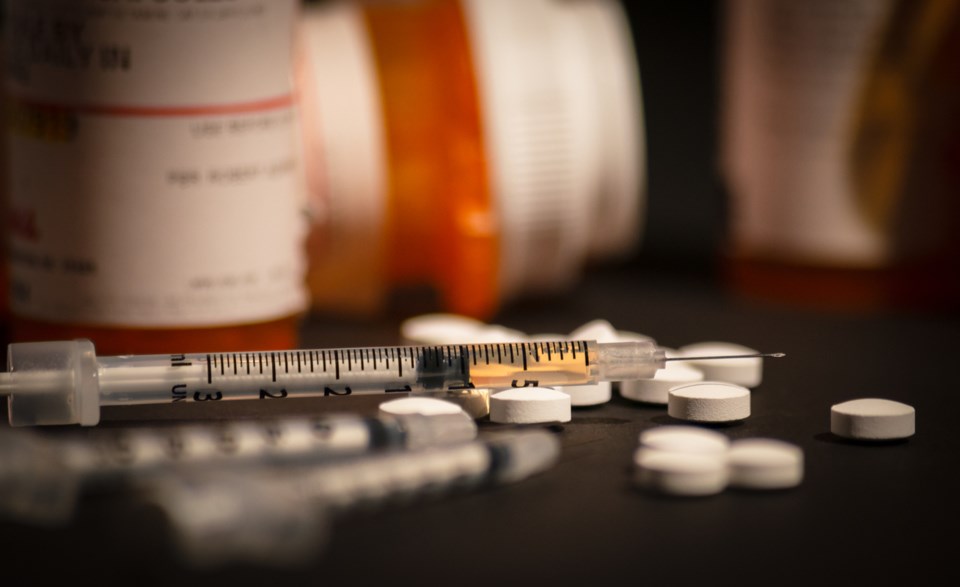B.C.’s Court of Appeal has upheld a 16-year jail sentence for a Coquitlam drug trafficker convicted of dealing primarily in fake oxycodone pills containing fentanyl.
Andrew Edwin Robert Leach’s “high moral culpability called for a severe sentence, particularly given the nature and duration of his conduct which significantly imperilled the safety of the community,” Justice James Fitch said in the unanimous decision.
In his appeal, Leach sought a lesser jail sentance, arguing that 16 years was more severe than other cases with similar circumstances and was disproportionate to his moral culpability.
There was no evidence any fentanyl sold through Leach's drug network led to anyone’s death, the Dec. 11 ruling said.
Leach was sentenced in May 2018, after he pled guilty to a variety of drug and firearms‑related offences arising from a dial-a-dope operation he ran out of Coquitlam homes between June 2016 and June 2017.
He had already served prison time for manslaughter after being charged with second-degree murder in a stabbing death.
He began using oxycodone, morphine and eventually fentanyl for a shoulder injury and was soon dealing, Fitch said.
The ruling said Leach started dealing to support his own addiction and supply customers who came to rely on him for fentanyl. He told the court his decision-making process was so impaired that he thought he was helping his customers by selling to them.
“He expressed remorse for his conduct,” Fitch said.
The fentanyl pills were packaged as “fake 80’s,” meaning they were marked to appear as 80 mg oxycodone pills.
“Overdoses frequently occur when individuals think they are taking some other drug but are, in fact, ingesting fentanyl,” the ruling said.
Leach employed a day-to-day manager who supplied and reloaded street-level traffickers with drugs from a Coquitlam stash house.
He hired drug addicts for street-level deliveries and supplied them with rental cars and telephones for this purpose.
Leach used a second apartment in Coquitlam to store additional quantities of drugs to be transported to the stash house when they were needed.
“In addition,” the ruling said, “the appellant used the residence occupied by his mother, sister and nephew to store drugs, weapons and the cash proceeds of his drug‑trafficking enterprise.”
The sentencing judge found police wiretaps established Leach was “the head of an organized, ongoing drug network with clear shifts, working hours, sales goals, employees, regular customers and organizational rules. The appellant was in charge and his co‑conspirators did not do anything that could affect the business without first getting his approval.”
In addition to the fentanyl-laced pills, Leach sold significant amounts of cocaine and Xanax.
When police executed search warrants at the three locations after a year-long investigation, they seized 11,727 fentanyl pills.
“If sold individually, this amount of product would fetch between $175,905 and $410,445 in street-level sales," Fitch said.
About $725,000 was found in the locations.
Firearms found at the family home included a Cobray M-11/9-mm machine pistol with an oversized magazine and readily accessible ammunition; a Winchester 12 gauge shotgun; a Glock 17 pistol with an unloaded, oversized magazine and a second magazine containing 17 rounds of ammunition; a Glock 23 pistol that was loaded with 15 rounds; one silencer and scope; 9-mm rounds of ammunition; a Steyr Mannlicher M9 9-mm pistol and a Beretta model 96D .40-calibre pistol. The serial numbers on the handguns had been removed.
The sentencing judge had statistics before him on the hundreds of drug deaths due to fentanyl overdoses.
The province is also seeking civil forfeiture on three properties involved, including a home on Cortes Avenue and several other locations raided by Coquitalm RCMP in June 2017.
@Jhainswo
— with files from Diane Strandberg, The Tri-City News



